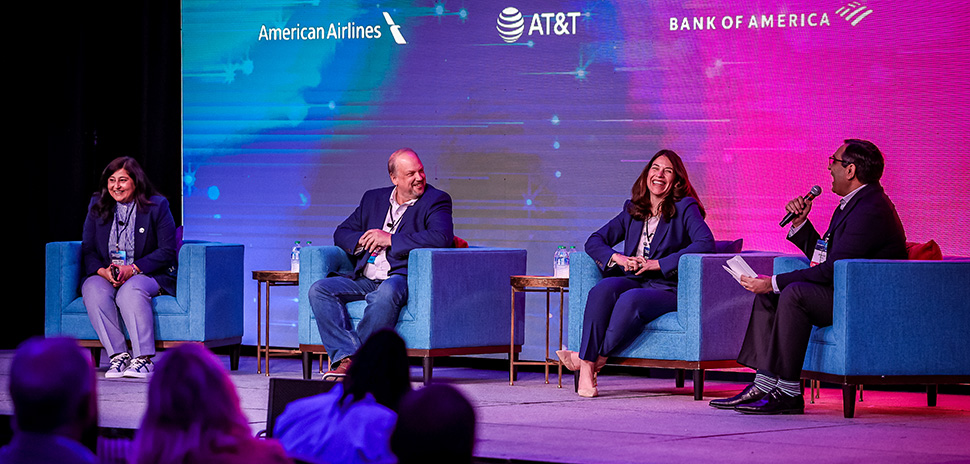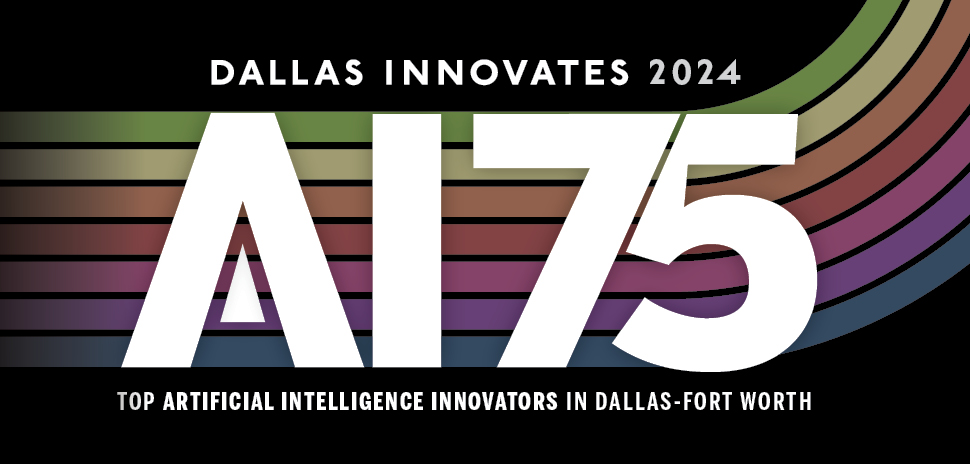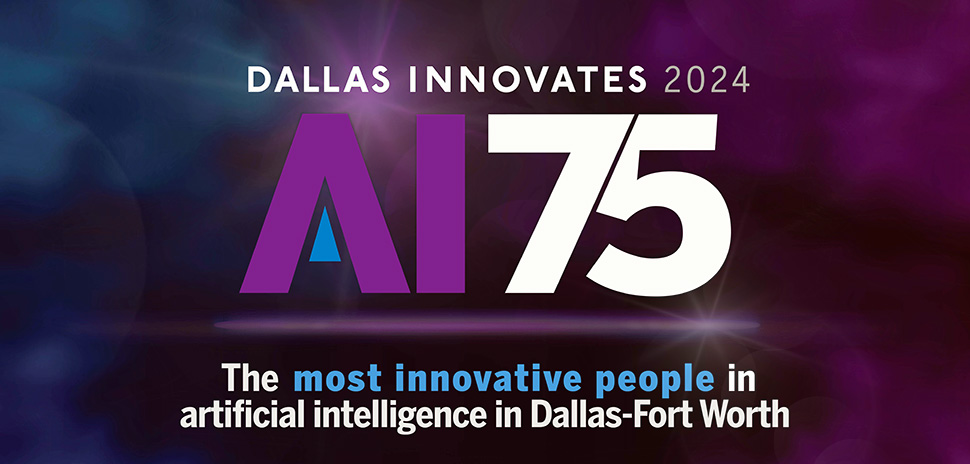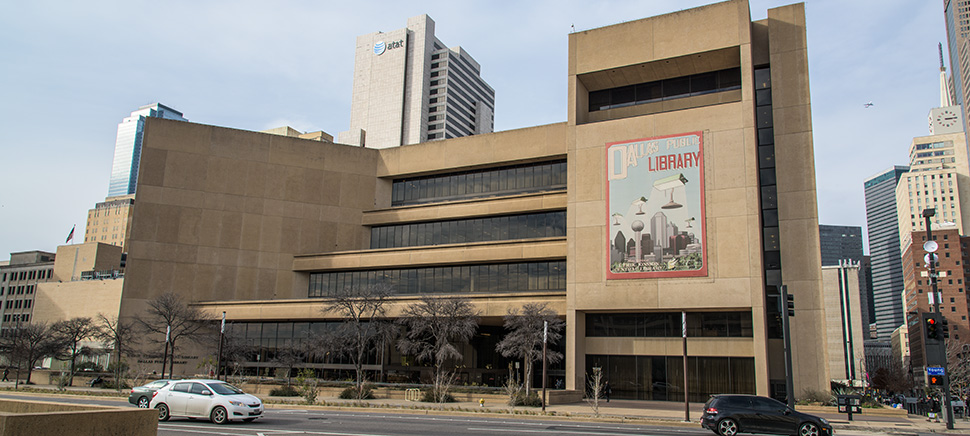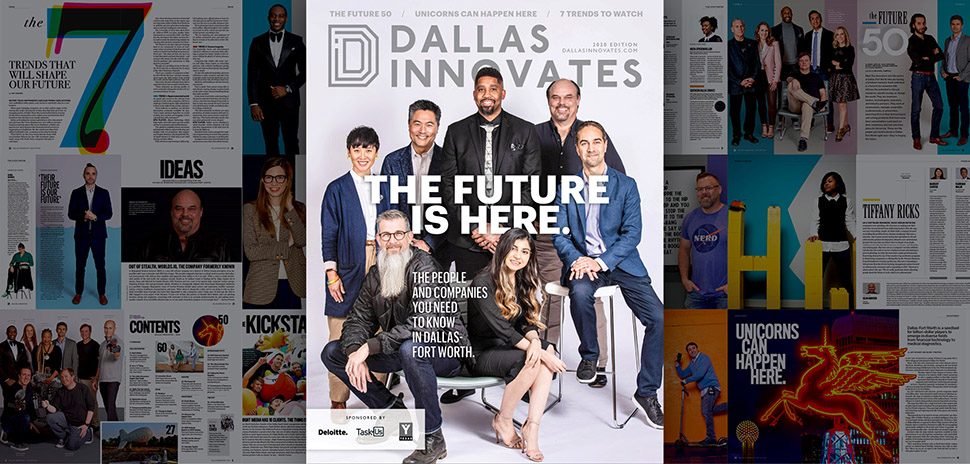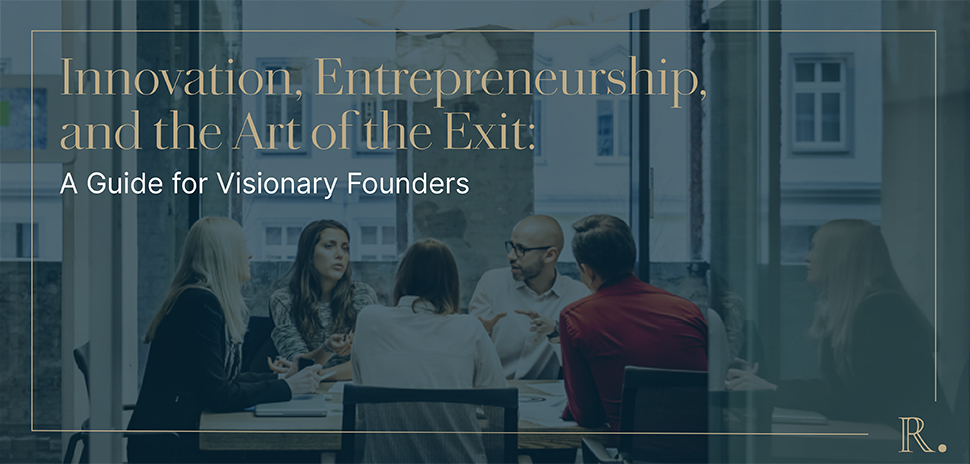Before artificial intelligence, it could take 7-Eleven’s asset protection team around two weeks to bust thieves who stole gasoline from the company’s stores. Today, though, thanks to AI, some “sticky-fingered” fuel bandits who siphon gas from underground tanks or mess with the fuel dispensers are being apprehended on the spot, said Onutase “OD” DeHenre, vice president of enterprise data at Irving-based 7-Eleven.
“You start bringing AI into the middle of this, and we started catching criminals in the act,” DeHenre told a crowd of more than 650 at the May 2 “Convergence AI Dallas” conference in Irving. “You call the cops: ‘He’s right there. Go get him!’ … The police love it. It’s all wrapped up in a bow.”
In general, the big convenience store chain is finding “more upside than a more challenging downside” with AI, the enterprise data executive added. “There are so many more opportunities to use AI. With more tech, the gains are 10x, 100x, 1,000x.”

Onutase “OD” DeHenre, Vice President of Enterprise Data at 7-Eleven; John Almasan, Senior Managing Director, Head of AI and Emerging Technology at TIAA; and Corbett Guest, President and Chief Strategy Officer at Imaginuity, discuss tackling disruptive challenges—and turning them into opportunities. [Photo: Harper Belmont Media/DRC]
DeHenre was among nearly two dozen AI experts who spoke at the conference hosted last week by the Dallas Regional Chamber at the Irving Convention Center. Titled “Convergence AI Dallas: Where Artificial Intelligence and Business Meet,” the all-day meeting included sessions on the hands-on application of generative AI, industry disruptions, becoming an “AI-first” company, and the regulation and ethical implications of AI.
During several morning sessions, executives from enterprises including Accenture, Citi Ventures, AT&T, American Airlines, and Teachers Insurance and Annuity Association of America (TIAA) joined DeHenre in reviewing the AI landscape and describing how the technology had affected their companies. Like Matt Carbonara, managing director at Citi Ventures, they agreed that—despite a good amount of hype—AI will be “very transformative” over time.
“The amount of money that’s going into investments in innovation in the space is pretty phenomenal,” Carbonara said. “If you think about it, every corporate board in America, including ours, has said, ‘Hey, what are we doing about this?’ “

From left: Matt Carbonara, Managing Director at Citi Ventures, and Vankatesh G. Rao, Data and AI Practice Lead for Accenture North America, discuss transforming business practices, from automating routine tasks to predicting market trends. [Photo: Harper Belmont Media/DRC]
Vankatesh G. Rao, data and AI practice lead for Accenture North America, likened AI to previous “revolution cycles” such as the personal computer, the internet, and mobile phones. He advised companies to ask, “How do I internalize this within my enterprise?”, and then suggested a framework for doing so.
“Whether it is creating content generation in the marketing realm, or customer support, or any kind of conversational activity, there is enough promise out there so we say, ‘Focus, and lead with value—and let that value be in tune with whatever your corporate strategy is,’” he said. “Second, you have to have an architecture that will start dealing with the complexities of data management, whether it’s structured, unstructured, or synthetic.
“And all of this has to be in a mode of continuous reinvention,” Rao continued. “This is a continuous thing. This will evolve for a while. So please make sure that there is an ability for you to revisit and reinvent this space every three to six months, because a lot is happening.”
Executives offered examples of multiple ways AI had impacted their companies “where the rubber meets the road:”
- Dallas-based AT&T has given 104,000 employees access to an early iteration of OpenAI’s generative AI ChatCPT system via its internal, Ask AT&T tool. Ask AT&T especially has helped employees with less experience, said Mark Austin, vice president, data science, at AT&T. Using the tool, those employees showed 50% improvement on certain tasks, he said.
- American Airlines has built an AI system “that takes all the data from different sources, including weather, and tells what is the best route for a particular flight that you should take,” said Anchal Gupta, AA’s chief technology officer. The Fort Worth-based carrier also has developed an AI solution to reduce aircraft turnaround times. “We are prioritizing work that adds value for our customers,” Gupta said. “A good example is when you turn the aircraft around: It’s almost like a symphony that has to work in place to turn the aircraft around. So, in the recent past, we’ve applied another AI model that allowed us to save the time that the aircraft is on the tarmac.”
- 7-Eleven’s DeHenre said the company has been using AI and personalized data to develop and bolster its delivery function. The company’s delivery capability “didn’t exist five years ago,” but now is approaching a $1 billion business, he said. The retailer also is leveraging data to anticipate what a customer’s experience needs to look like in order to replicate “that old-timey convenience feeling,” DeHenre said: What day and time the customer will enter the store, for example, what products they typically buy, and so on. “That’s what we’re marching toward,” he said.
- John Almasan, senior managing director, head of AI and emerging technology at TIAA, said the financial services giant has partnered with Google on “a lot of AI automation” to enhance the client experience, for instance, and to improve its analysis. “I’m very proud to say that we are, to my knowledge, the first company in the financial industry to leverage generative AI to provide meaningful, complete, reliable, trustworthy information in the public search,” Almasan said. With this AI, he went on, the company’s marketers can generate content that’s more targeted to customers, and its analysts are empowered to search larger documents and unstructured data. The goal is “hyper-customization” geared toward the needs of different generations seeking trustworthy content, Almasan said.
- Corbett Guest, president and chief strategy officer at the Dallas-based marketing agency Imaginuity, said his shop had recently used AI to develop a “virtual spokesperson” named Cindy for a number of U.S. shopping centers in the portfolio of JLL Retail Property Management. JLL, an Imaginuity client, had previously used social influencers to promote the retail properties and fashion-based content. Now, “instead of leveraging multiple influencers across 30 or 50 or 50 markets, they can leverage a virtual spokesperson that they can tailor to those individual properties,” Guest said.
One note of caution about artificial intelligence was sounded during a morning session by Mukesh Kumar, head of technology at Slalom, a consulting firm. Kumar equated AI to fire, adding, “Fire can really be very useful—or it can be destructive.”
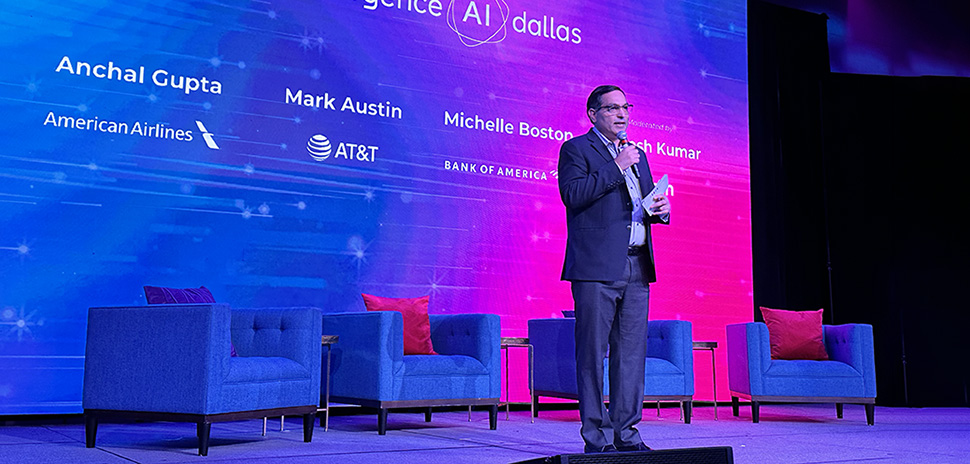
Mukesh Kumar, head of technology at Slalom Consulting, uses a striking analogy to describe artificial intelligence, comparing it to fire to emphasize its powerful potential and a need for care. [Photo: Dallas Innovates]
Meantime, Almasan of TIAA agreed with 7-Eleven’s DeHenre—who’d just recounted AI’s role in busting gas thieves—about the benefits of artificial intelligence for large enterprises and their employees.
“What I’ve seen is that AI drives improvements,” Almasan said. “Associates with AI are going to be more productive, efficient, and prepared than the associate without AI. The ability to bring AI into the hands of everyone, and empowering everyone in any organization, is just going to make us better and … more productive.”
![]()
Get on the list.
Dallas Innovates, every day.
Sign up to keep your eye on what’s new and next in Dallas-Fort Worth, every day.










